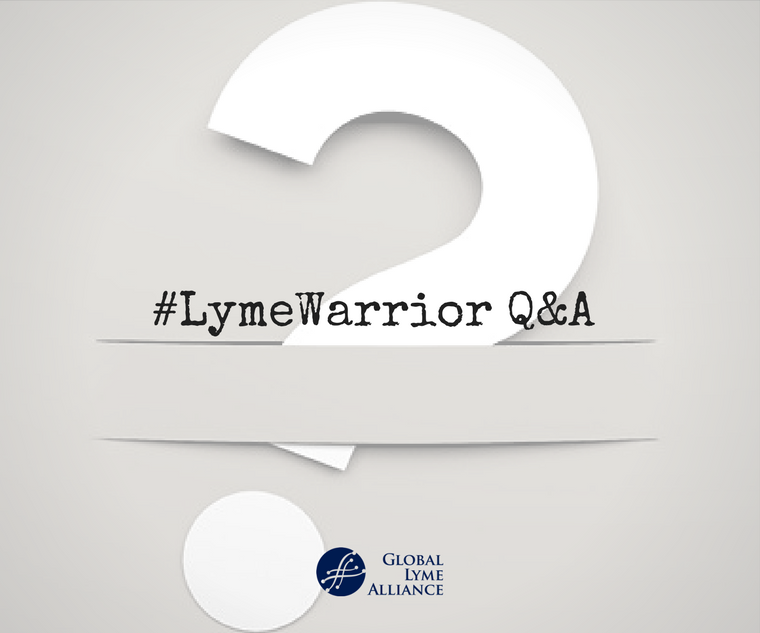
by Jennifer Crystal
Every few months, Jennifer Crystal devotes a column to answering your questions. Here are her answers to some recently received questions. Do you have a question for Jennifer? Email her at jennifercrystalwriter@gmail.com.
How do I force myself to eat healthy, despite severe cravings for bad food, and an emotional response (shame, guilt, anger) when I eat it?
When you’re feeling sick and so much is going wrong in your life, you reach for comfort foods, something that might temporarily make you feel better. Beyond chicken noodle soup, you want ice cream or cookies or things that taste good. But eating such foods can actually make Lyme disease worse. Lyme bacteria thrive on yeast and sugar. When you consume such foods, you’re not just feeding yourself—you’re also feeding the bacteria, encouraging it to grow and spread. The bacteria want more of it, which is what causes you such intense cravings. Moreover, yeast and sugar can cause intestinal yeast overgrowth, which can weaken your immune system. So not only are you increasing the Lyme bacteria, but you’re decreasing your body’s ability to fight it.
If this isn’t enough to keep you away from bad food, there is, as you mentioned, the emotional response to it. The high of a tasty cookie is quickly lost when you feel upset about eating it. Tick-borne disease already causes plenty of guilt, shame, and anger—for being sick, for being dependent on others, for not being able to meet social expectations. You don’t have control over many of those things.
Food is one thing you do control, and I encourage you to look at that as a positive tool for returning to health. Nourish your body with fuel that is full of nutrients, foods that advance the healing process rather than impede it. And when you deserve a treat, find a recipe for gluten-free, sugar-free cookies, or eat a small amount of dark chocolate. Find a treat that works for you and enjoy it sparingly, as a reward for fueling your body correctly.
How difficult was it for you to admit to yourself that you couldn’t work full-time?
Very difficult. I still struggle with it from time to time. When you’re once independent and successful, it’s very hard to become dependent on others. Society expects you to keep going, to achieve more, to earn more. When you’re healthy, you have the ability to stay on that track. Chronic illness throws you off, and that fall can really hurt your pride. I have wrestled with a lot of guilt and shame about becoming dependent, and even as I’ve been able to start working part-time, it still bothers me that I’m not fully returned to the independent, high-achieving track from which I fell.
Along the way, I’ve learned a few things. The first is that getting a tick-borne illness was not my fault. I didn’t ask the tick to bite me. I didn’t suddenly say, “You know what, I just don’t feel like working anymore.” I didn’t make any bad choices (besides maybe pushing myself too hard!) that caused me to lose my job. It’s essential to forgive yourself for being sick and recognize that dependence is not a choice but a necessity..
When I first started to get well, I wanted to dive back to my former independent lifestyle, and I worked way too hard as an Editorial Assistant for a magazine. I put in too many hours, and that took a toll on me physically and mentally. Within three months, I relapsed. I was back at square one, bedridden and unable to work. I learned that jumping right into full-time work pushed this Lyme patient too far and was counter-productive.
Once I recovered from my relapse—a two-year battle—I re-entered the workforce in a different way, with a different mindset. I realized that tick-borne illness was always going to be with me, and I had to find a way to live my life in a way that took my health history into account. I took on part-time jobs slowly. As I built my health up over time, I added commitments as I could take them on, always ensuring that my health was my number one priority.
Because I have to rest in the afternoon, I won’t ever be able to work a 9-5 job, but there are other jobs with more flexible hours (like teaching and writing) that I can do. What can you be able to do that works within your limitations? You may find that there are more opportunities than you might have realized in your healthier days.

Jennifer Crystal
Writer
Opinions expressed by contributors are their own. Jennifer Crystal is a writer and educator in Boston. Her work has appeared in local and national publications including Harvard Health Publishing and The Boston Globe. As a GLA columnist for over a decade, her work on GLA.org has received mention in publications such as The New Yorker, weatherchannel.com, CQ Researcher, and ProHealth.com. Jennifer is a patient advocate who has dealt with chronic illness, including Lyme and other tick-borne infections. Her memoir, One Tick Stopped the Clock, was published by Legacy Book Press in 2024. Ten percent of proceeds from the book will go to Global Lyme Alliance. Contact her via email below.




-2.jpg)

